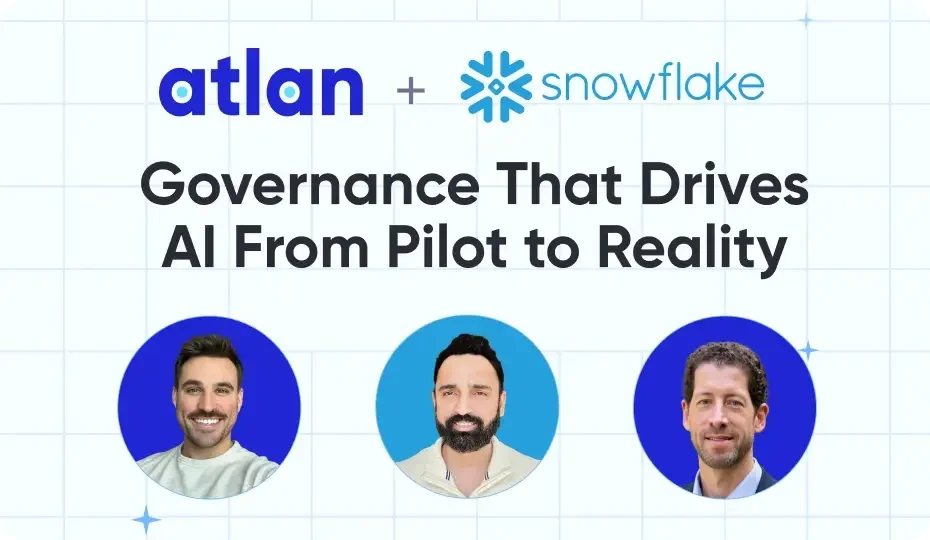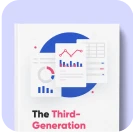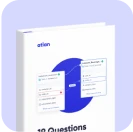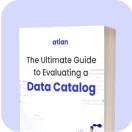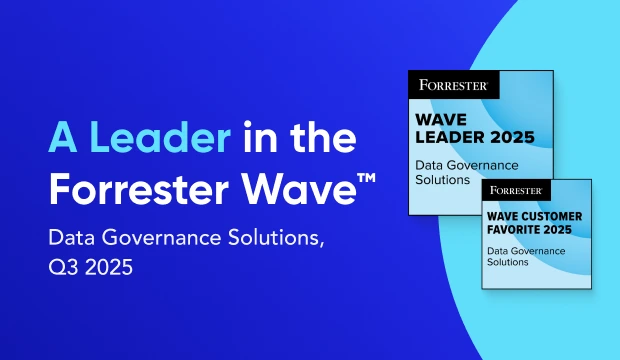Data Migration in Hospitality: Your Complete 2025 Guide to Transforming Operations and Guest Experiences
Share this article
Data migration in hospitality is essential for modernizing hospitality operations, enabling businesses to deliver exceptional service while adopting advanced technologies. It helps hospitality businesses move from one system, storage environment, or format to another.
See How Atlan Simplifies Data Governance – Start Product Tour
From transitioning to cloud platforms and upgrading legacy databases to integrating AI-driven tools, data migration plays a pivotal role in driving efficiency and enhancing guest experiences.
This article explores the significance of data migration in the hospitality industry, its benefits, challenges, and the vital role of embedded data governance in ensuring successful migrations.
Table of Contents #
- What is data migration in hospitality?
- 4 prominent use cases of data migration in hospitality
- Business benefits of data migration in hospitality
- Top challenges of data migration in hospitality
- Data migration in hospitality: How embedded governance can help
- Next steps in your data migration journey
- Data migration in hospitality: Related reads
What is data migration in hospitality? #
Data migration in hospitality is the process of transferring data from one system or storage environment to another, enabling businesses to adopt new technologies, improve efficiency, and deliver better guest experiences.
For example, JW Marriott undertook a transformative migration to Snowflake to modernize its tech stack. Previously, the company faced challenges like high costs and operational inefficiencies. Data engineers spent 20% of their time addressing infrastructure issues, such as tuning Spark jobs.
By migrating to Snowflake, Marriott achieved streamlined data ingestion, real-time access, and improved operational efficiency. This shift reduced TCO (total cost of ownership), and enhanced data sharing, user experience and collaboration.
“Queries that used to take 5 hours or time out on Netezza now take 1 hour on Snowflake. Data that previously took 48 hours to one week in Hadoop is now available near-instantly in Snowflake.” - How Marriott modernized their data architecture with Snowflake
Also, read → Snowflake data governance explained
As mentioned earlier, data migration enables hospitality businesses to modernize their operations, adopt cutting-edge tools, and offer superior guest experiences. So, let’s look at some top use cases.
4 prominent use cases of data migration in hospitality #
The most common use cases of data migration in hospitality include:
- Transitioning from legacy systems to cloud-based platforms
- Transitioning to modern property management systems (PMS)
- Consolidating data across multiple properties for centralized management
- Upgrading to advanced platforms with automation, AI, and a unified control plane for data
Let’s explore each use case further.
1. Transitioning to the cloud #
The hospitality industry has traditionally relied on legacy systems for managing reservations, guest profiles, and operational workflows. However, these systems often lack the flexibility and scalability required to meet modern demands.
Migrating to cloud-based platforms empowers hotels and resorts to improve guest services like online bookings, contactless check-ins, and personalized promotions.
For example, real-time analytics from cloud systems enable better demand forecasting and dynamic revenue management, helping hotels optimize room rates during peak seasons.
Also, read → Benefits of moving from on-premise to the cloud
2. Upgrading to modern property management systems #
Property management systems are the backbone of hotel operations, handling everything from reservations to housekeeping schedules.
“Hotel operators rely on a property management system (PMS) for daily administrative tasks such as reservations, availability, pricing, occupancy management, check-in/out, guest profiles, guest preferences, report generation, etc. The PMS connects with other applications such as the hotel point-of-sales (POS) and central reservation systems (CRS).” - National Cybersecurity Center of Excellence, NIST
Migrating to a modern PMS ensures seamless integration with other tools, such as CRM platforms and payment gateways. For instance, an upgraded PMS might include AI-driven features that analyze guest preferences to deliver personalized services. A hotel could use this functionality to offer tailored promotions or ensure a repeat visitor’s favorite room is pre-assigned.
3. Consolidating data across multiple properties #
Large hospitality chains often manage data from multiple properties, each with its own systems and processes. Consolidating this data into a centralized system ensures a unified view of operations, enabling better decision-making and operational efficiency.
For example, centralizing guest profiles allows for personalized services across properties, improving brand loyalty and guest satisfaction. Additionally, it enables streamlined loyalty program management and cross-property promotions, fostering brand loyalty.
4. Upgrading to advanced platforms with automation, AI, and a unified control plane for data #
Data migration also facilitates the adoption of advanced platforms powered by automation and AI. These tools analyze guest feedback, optimize pricing strategies, and identify operational inefficiencies.
Enhancing this setup further is a unified control plane that creates a consistent layer of oversight, integrating all these disparate data sources and systems. This approach enables hospitality businesses to offer personalized services and real-time insights, all while maintaining strict compliance with data privacy laws.
Also, read → The unified control plane in action
Having explored the concept and use cases of data migration in hospitality, let’s explore the business benefits of data migration in hospitality.
Business benefits of data migration in hospitality #
Data migration is a strategic move that drives cost savings, efficiency, and improved guest experiences. By adopting modern platforms, hospitality businesses can stay competitive, streamline operations, and make smarter decisions. The top benefits include:
- Cost savings: Migrating from outdated systems to modern platforms reduces maintenance costs and eliminates inefficiencies
- Enhanced guest experiences: Centralized data and advanced tools enable personalized services and better loyalty programs
- Operational efficiency: Faster decision-making, improved collaboration, and reduced downtime drive smoother operations
Let’s look at some case studies to see how businesses have benefitted from data migration.
1. Choice Hotels cloud migration: Cutting costs and streamlining operations #
As mentioned earlier, migrating to modern, cloud-based systems can result in significant cost savings. Cloud storage and processing can be more affordable than maintaining on-premises infrastructure. This lowers maintenance costs and frees up IT resources for more strategic tasks.
Choice Hotels made this transition by moving to AWS and launching the cloud-based ChoiceEDGE reservation system. This shift enabled them to phase out physical data centers, reducing maintenance expenses and streamlining operations through a unified data platform.
2. Host Hotels Azure migration: Enhancing data analytics and guest experience #
Host Hotels aimed to modernize their IT infrastructure to improve data analytics and streamline operations.
By migrating to Azure, Host Hotels centralized their data, enabling better insights into their properties and performance metrics. The transition allowed for real-time data analysis, improved decision-making capabilities, and enhanced guest experiences through personalized services.
Overall, the adoption of Azure has positioned Host Hotels to leverage data more effectively, contributing to their strategic goals and operational excellence.
While data migration in hospitality offers several advantages, it also presents challenges. Recognizing these complexities is essential for achieving a smooth and successful migration.
Top challenges of data migration in hospitality #
Poorly executed data migration can lead to severe consequences, such as data loss,
operational disruptions, compliance issues, and financial setbacks. For the hospitality industry, where seamless guest experience is utmost important, these challenges can have significant effects.
Some of the key challenges organizations face during data migration include:
- Inconsistent data: Variability in data formats or quality can slow the migration process and impact accuracy
- System downtime: Migration-related downtime can interrupt business operations, leading to lost revenue
- Large, complex datasets: Mishandling massive datasets can result in data corruption or incomplete transfers
- Mapping errors: Misaligned fields or mapping issues can cause disruptions, lowering operational efficiency
Data migration in hospitality: How embedded governance can help #
Data migration is often viewed as a straightforward task of transferring data from one system to another. However, the reality is far more complex – as evidenced from the above-mentioned challenges.
Without careful planning that handles data asset mapping, access policy definition and enforcement, security and compliance factors, etc., data migration can quickly become a messy, error-prone process that risks compromising data integrity, privacy, and security.
Embedded data governance addresses these challenges by maintaining data quality, security, and compliance throughout the migration lifecycle. Rather than being an afterthought, data governance should be a continuous, active part of the process to ensure that data remains secure, compliant, and usable throughout its lifecycle.
Key elements of embedded data governance include (but aren’t limited to):
- Setting up a unified control plane for data: Think of a centralized hub for data management and governance – policy setting, enforcement, coverage dashboards, lineage, and more.
- Ensuring metadata management that adopts a ‘metadata lake house’ approach: A metadata lake house approach maps data across different systems and ensures end-to-end ecosystem enablement.
- Setting policies for data governance, integration, lifecycle management: Enable policies that govern data through all of its transformations – from creation and storage to archival and eventual deletion. Also, set policies that define the standards for combining data from various sources (CRMs, banking apps, payment systems).
- Mapping the entire data estate: Active, automated, actionable data lineage built on rich active metadata that tracks data flow across systems.
- Getting 360-degree context on data assets: Access metadata, understand data relationships, and maintain a clear overview of all data assets from a single pane of glass.
- Ensuring compliance with regulations: Throughout the migration process, make sure that you have thorough documentation with automated audit trails, data access logs, etc.
By embedding governance into every migration phase, organizations can ensure their data remains secure, compliant, and actionable.
Also, read → The active data governance manifesto
Next steps in your data migration journey #
Data migration is a strategic investment that transforms how hospitality businesses operate and deliver services. Start by evaluating your current systems and defining clear migration goals. Ensure alignment across departments to maximize the benefits of migration.
Consider adopting a platform like Atlan to embed governance into your migration process. With features like automated policy enforcement, lineage mapping, and metadata management, Atlan can help in overseeing complex migrations while maintaining data integrity and compliance.
Data migration in hospitality: Related reads #
- Data Migration: On-Premise to Cloud - 10 Steps to Success
- 8 Essential Strategies to Fast-Track Your Cloud Migration Journey
- Cloud vs On-Premise vs Hybrid: Choosing the Right Data Management Approach
- Data Governance in Hospitality: Complete Guide for 2025
- Data Discovery in Hospitality: Benefits, Challenges, Capabilities
- 7 Use Cases of Data Analytics in Hospitality Industry in 2025
- Data Warehouse Migration: 10 Best Practices
- Cloud Data Warehouses: Cornerstone of the Modern Data Stack
- What is data governance & why does it matter?
- 7 Best Practices for Data Governance to Follow in 2025
- Data Governance Policy: Examples, Templates & How to Write One
- Automated Data Governance: How Does It Help You Manage Access, Security & More at Scale?
Share this article

